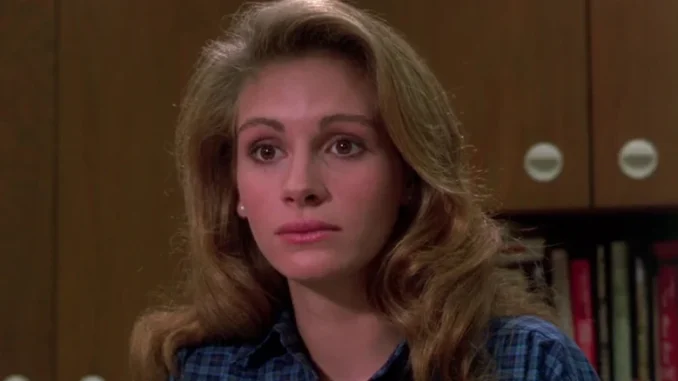
Before she was one of the biggest movie stars in the world, Julia Roberts was apparently subject to on-set mistreatment by the late director Herb Ross. Ross, who died in 2001, directed Roberts in one of her earliest hits, the heartfelt 1989 drama “Steel Magnolias.” When the movie hit theaters, Roberts was just four months away from becoming a major celebrity thanks to the success of “Pretty Women.” But in a recent interview with Vulture, her “Steel Magnolias” costar says Roberts, then in her early 20s, was subject to tough treatment by Ross.
“Herb was very, very, very hard on Julia,” Sally Field told the outlet in February. “If you ever talk to Julia, she’ll tell you.” She continued: “We will all rally around Julia, because she was the baby. She was sort of the newcomer.” In the film, Roberts plays Shelby, the daughter to Field’s M’Lynn who suffers from diabetes. Field says that Roberts was “wonderful” to work with, but Ross “just picked on her. It was awful.”
Field is right: Roberts has actually talked about problems she had worked with Ross before, including in a section of the 2004 biography “Julia: Her Life,” by James Spada. “There was a time when he was picking on me so bad that Sally, God bless her, said, ‘If you don’t let up, I’m just going to go wait, because I can’t be around this,’ ” the star said. “‘It’s just too pointless and too mean.’” For Field’s part, she credits co-star Dolly Parton for standing up for Roberts. “We all came to her aid,” she told Vulture, “and I remember Dolly once just turned on him — always with humor, but usually the most vulgar humor you ever heard so that it was like, you just literally don’t have a leg to stand on.”
Although Field doesn’t get into details about the on-set problems, Spada’s biography claims that things didn’t get off to a good start when Ross made the future rom-com fixture act out the toughest scene in the film — her character’s diabetic seizure — on her first day of filming. The cast had apparently rehearsed before, but Roberts focused so hard on playing a dying woman in the moment that she depleted herself greatly, and ended up in tears. “She believed everything was truly happening to her,” fellow castmate Shirley MacLaine was quoted as saying in Spada’s book. “It wasn’t acting exactly. She went through real discomfort.”
Screenwriter Robert Harling, who based Roberts’ character on his own sister, described watching the upsetting scene as well. “She came as close to death as you can while you’re still alive,” he said, adding that he wanted to give the actress a hug and tell Ross, “‘Okay, stop it. Let’s not do this anymore.’” Sources cited in “Julia” also say that Ross berated Roberts on her performance throughout filming, including asking her if she was “going to go back to New York to study [acting].” Horrifyingly, MacLaine also said the director, who came from the dance world, wanted to have “a ballet master’s control over his new discoveries” and tried to restrict Roberts’ diet with a calorie limit. “He claimed he could detect the effects of an extra saltine cracker on an actress’ face.”
If Ross’ mistreatment of Roberts still feels like news today, it seems to be because the actress at one point took great pains to be publicly cordial towards her ex-boss in the press. She finally fired back at him in the December 1993 issue of “Premiere,” after Ross had said in an interview (four years after “Steel Magnolias” came out) that Roberts acted “bright and cheerful, in a general way, never understanding the subtext” of her character’s fear. He insulted Roberts’ intelligence and talent, and as she told “Premiere,” he also “made it sound like he was forced to hire [Roberts]” and “went out of his way to talk about the people he wanted over [her].”
